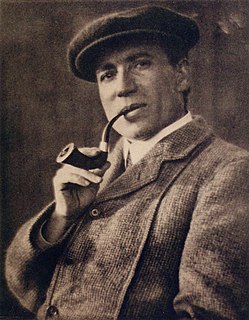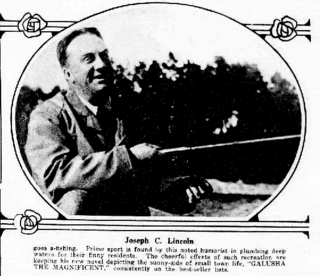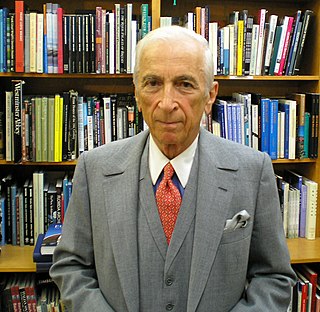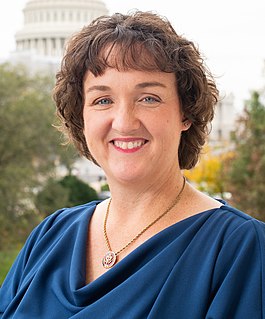A Quote by W. H. Davies
My own wandering blood comes from my seafaring grandfather, who, after he had left the sea and settled on shore, still governed his house by a ship's rules.
Related Quotes
[I]f a man bred to the seafaring life, and accustomed to think and talk only of matters relating to navigation, enters into discourse upon any other subject; it is well known, that the language and the notions proper to his own profession are infused into every subject, and all things are measured by the rules of navigation: and if he should take it into his head to philosophize concerning the faculties of the mind, it cannot be doubted, but he would draw his notions from the fabric of the ship, and would find in the mind, sails, masts, rudder, and compass.
This was Barrington Erle, a politician of long standing, who was still looked upon by many as a young man, because he had always been known as a young man, and because he had never done anything to compromise his position in that respect. He had not married, or settled himself down in a house of his own, or become subject to the gout, or given up being careful about the fitting of his clothes.
I'll find you, Will!" Then the wind filled the big, square sail of the wolfship and she heeled away from the shore, moving faster and faster towards the northeast. For a long time after she'd dropped below the horizon, the sodden figure sat there, his horse chest-deep in the rolling waves, staring after the ship. And his lips still moved, in a silent promis only he could hear.
...as the slow sea sucked at the shore and then withdrew, leaving the strip of seaweed bare and the shingle churned, the sea birds raced and ran upon the beaches. Then that same impulse to flight seized upon them too. Crying, whistling, calling, they skimmed the placid sea and left the shore. Make haste, make speed, hurry and begone; yet where, and to what purpose? The restless urge of autumn, unsatisfying, sad, had put a spell upon them and they must flock, and wheel, and cry; they must spill themselves of motion before winter came.
The workman cut to the left, still laying on his horn, and roared around the drunkenly weaving limousine. He invited the driver of the limo to perform an illegal sex act on himself. To engage in oral congress with various rodents and birds. He articulated his own proposal that all persons of Negro blood return to their native continent. He expressed his sincere belief in the position the limo driver's soul would occupy in the afterlife. He finished by saying that he believed he had met the limodriver's mother in a New Orleans house of prostitution.
After my grandfather died I went down to the basement of my family house where my family kept books, anthologies and things and there was an anthology without any names attached to it and I read a poem called Spellbound and I somehow attached it to my grandfather's death and I thought my grandfather had written it.
My own view is that the Churches should frankly recognise that the majority of the British people are not Christians and, therefore, cannot be expected to live Christian lives. There ought to be two distinct kinds of marriage: one governed by the State with rules enforced on all citizens, the other governed by the Church with rules enforced by her on her own members." --about the only statement i agree with in this book
Have you ever been at sea in a dense fog, when it seemed as if a tangible white darkness shut you in, and the great ship, tense and anxious, groped her way toward the shore with plummet and sounding-line, and you waited with beating heart for something to happen?
I was like that ship before my education began, only I was without compass or sounding-line, and had no way of knowing how near the harbour was.
Thus, it comes to pass, that a certain room in a certain old hall, where a certain bad lord, baronet, knight, or gentleman, shot himself, has certain planks in the floor from which the blood will not be taken out. You may scrape and scrape, as the present owner has done, or plane and plane, as his father did, or scrub and scrub, as his grandfather did, or burn and burn with strong acids, as his great-grandfather did, but, there the blood will still be - no redder and no paler - no more and no less - always just the same.







































